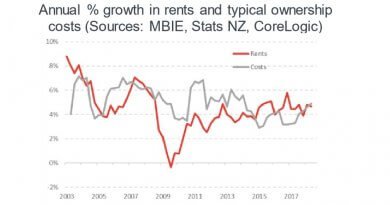90-day trial a tool to hiring good staff and for creating good businesses
Morrison Kent partner, Michael Wolff, explains a few ins and outs about the 90-day trial process that you need to be aware of.
Employing good quality staff is essential to maintaining a good business, and without good staff businesses cannot develop and grow. The 90-day trial period can be an essential tool in bringing the correct people into your business and in minimising the risks around a hiring mistake. However, there are a few ins and outs about the process you need to be aware of, which we explain below.
From 6 May 2019 the use of 90-day trial periods will be restricted to only small to medium sized employers, which means only employers with fewer than 20 staff at the time of the beginning of the day on which the Employment Agreement is entered into.
If you have less than 20 staff, then the requirements of a 90-day trial period include:
1. The trial period clause must be in writing;
2. The employee must be a “new employee”, who is an employee who has not worked for the employer before including any unpaid trials, internships or casual employment. An employer should ensure the employee has a signed Employment Agreement prior to starting work (including the trial period clause), for example if the employee signs their Employment Agreement after lunch on their first day of work they will be deemed to be an existing employee and therefore the 90-day trial period will be invalid;
3. The trial period clause must advise employees if they are dismissed during their 90-day trial period they do not have the right to bring a personal grievance in respect of that dismissal. However, they maintain the right to bring personal grievances in respect of unjustified disadvantage and claims in respect of bullying, harassment and discrimination.
An employer should alert the employee to the existence of the trial period and advise the employee of their right to discuss that clause.
What do I need to do to dismiss an employee under a 90-day trial period?
The first step is to ensure the 90-day trial period is valid. Then, you must still meet your good faith obligations including providing the employee the opportunity to improve and providing reasons for the dismissal, if requested. Although an employee terminated under a valid 90- day trial period cannot raise a grievance regarding their dismissal they can still request mediation and raise a personal grievance on grounds of disadvantage, discrimination or sexual or racial harassment.
So, what are my options if I cannot use the 90-day trial period?
If you are unable to have a trial period there are other options available to you. The first being a probationary period; like a 90-day trial period provision a probationary period has strict procedural requirements that need to be followed should you wish to rely on that provision. Secondly, if your employee is not performing to the standards you would expect you may implement a performance improvement plan. The intention of a performance improvement plan is to identify the standards that are expected, demonstrate to the employee how they are not meeting these standards and ways in which they can meet those standards. It is then important to monitor the employee’s progress in terms of getting them to a standard that is satisfactory.
The plan should have review periods and can range from around three weeks to three months. If following the period of the performance improvement plan an employee does not come up to standard, then disciplinary action can be commenced to terminate their employment.
If you would like information on 90-day trial periods, probationary periods or performance improvement plans please contact us.




